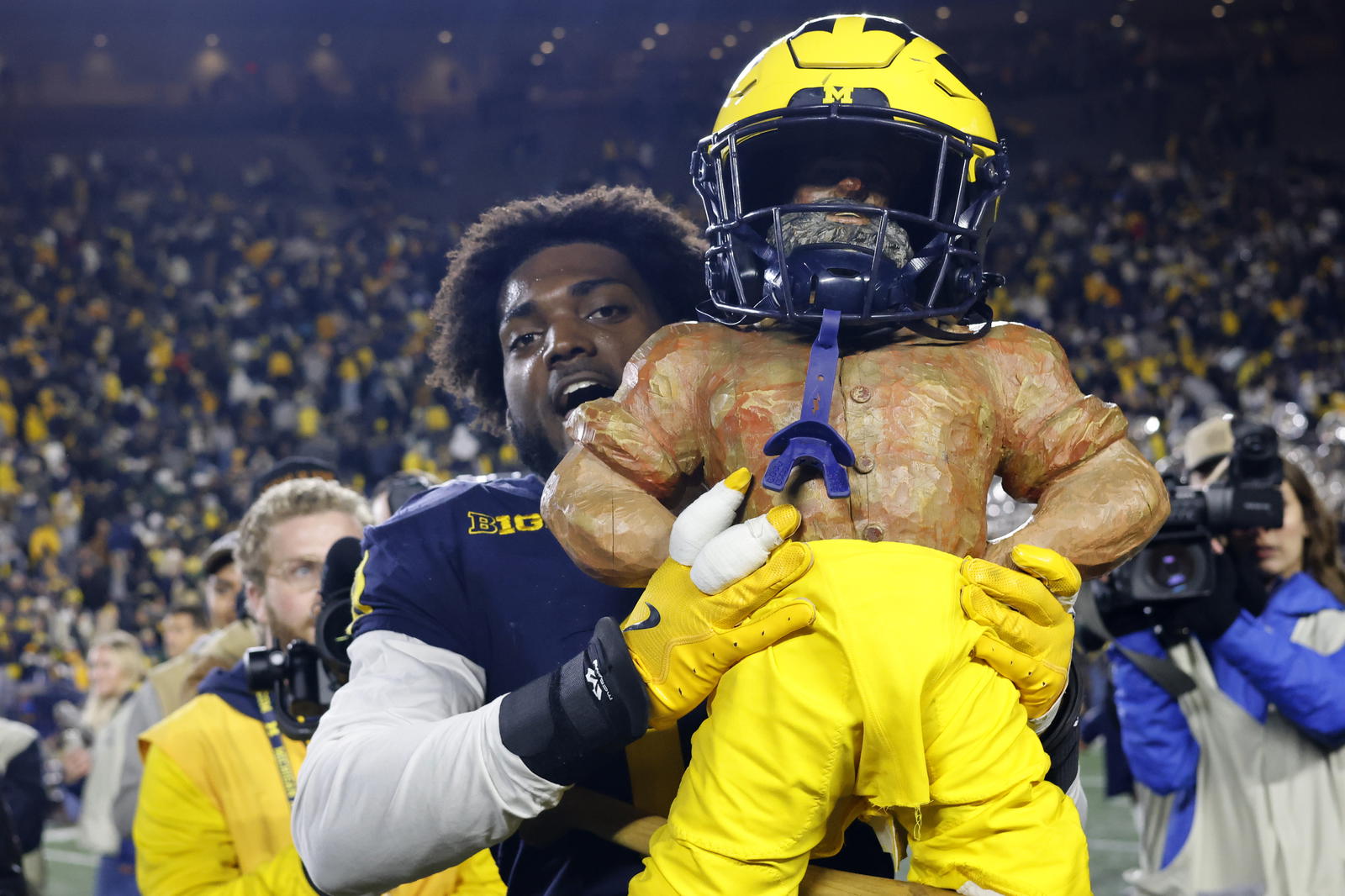

It's rivalry week in Michigan, and while the Wolverines enter Spartan Stadium as heavy favorites, they must exercise caution against their in-state rival. Despite a lopsided 2023 victory and a three-game winning streak in the series, Michigan cannot afford to overlook Jonathan Smith's Spartans, especially with their own season having its share of ups and downs. For Sherrone Moore's squad to secure the Paul Bunyan Trophy, they must navigate these three key areas of concern.
1. Quarterback Bryce Underwood’s growth in the pocket
While true freshman quarterback Bryce Underwood has showcased his immense talent this season, he and the Wolverines' passing offense have shown inconsistencies at times. The offense has lost some firepower compared to previous years, and the team faced a tough road loss to USC just two weeks ago. Now, they face a Michigan State pass rush that, while not dominant, could create problems if Michigan's offensive line fails to protect. The Spartans will try to affect Underwood and force him into difficult decisions, potentially leading to turnovers that have plagued their offense. Underwood has the arm talent to succeed, but he will need to demonstrate poise and make smart decisions against the pressure of a rivalry game in a hostile road environment.
2. Avoiding special teams mistakes
Special teams is an area where rivalry games can be decided, and Michigan State has been working to improve its performance. Last season, the Spartans had issues with kickoffs and missed tackles on coverage, giving their opponent, Iowa, positive field position that led to scores. They will be looking to prevent a repeat of that performance, particularly against a rival that’s trying to spark their team with a big kick return. The Wolverines need to be careful of special teams miscues, as one momentum-changing play, whether on a return or a kicking error, could shift the tide of the game. The noise at Spartan Stadium could also play a factor in snapping or kicking, adding another layer of pressure to a unit where execution is paramount.
3. Containing the passing game
Despite struggles in the running game, Michigan State's offense has found its strength in the passing attack, led by quarterback Aidan Chiles and a talented receiving corp. In their most recent loss to Indiana, Chiles had a bounce-back performance, completing 82% of his passes for 243 yards. Receivers like Nick Marsh and Omari Kelly have proven to be reliable targets who can make plays after the catch. While the Spartans have had limited success leveraging this part of their offense, it remains their most explosive threat. Michigan's defense, which ranks fourth nationally in interceptions, must be wary of these playmakers and limit yards after the catch. If they can't create stops and turnovers (they have only five forced turnovers on the season), Michigan State could stay in the game longer than expected.
Conclusion
While Michigan is heavily favored on paper, rivalry games often defy expectations. The potential for a letdown after their big win over Washington, combined with Michigan State's desperation, makes this a classic trap game scenario. By focusing on protecting their young quarterback, limiting special teams mistakes, and containing the Spartans' passing attack, Michigan can leave East Lansing with the Paul Bunyan Trophy and a clean sweep of their in-state rivals. Ignoring these critical areas, however, could result in a much tighter contest than Wolverines fans would like.

